Mission Statement
Our mission is to provide a liaison between the mountain communities and public safety agencies, to manage the volunteer fire department, and support community safety activities.
The Wildland Residents Association, Inc. is a nonprofit public benefit corporation. The WRA was incorporated in 1982, under the laws of the State of California, as a 501 (c)(3) IRC corporation. All donations to the WRA are tax deductible. There are no salaried positions in the WRA. All work is done by volunteers. The WRA does contract for some services such as accounting, legal, consulting services, and training.
The WRA serves as a liaison between Santa Barbara County’s mountain communities and various government agencies, and provides the management of the San Marcos Pass Volunteer Fire Department. The primary mission of the fire department is prevention and education. Suppression efforts are based on the concept of “self help.” A quick initial attack prior to the arrival of County Fire and Forest Service firefighters has proven to be very successful in preventing small fires from becoming major incidents.
Pursuant to state and federal laws, the WRA does not engage in political activities. The WRA does not support candidates for office. Those interested in these activities are encouraged to contact their local homeowners association.
The WRA maintains active membership in the Fire Safe Council and the California State Firefighters’ Association (CSFA), as well as the Emergency Public Information Committee (EPIC), CAER and the Tri-Counties Training Officers Association, National Volunteer Fire Council, and the International Fire Chiefs Association (NVFC). The WRA is a strong supporter of the American Red Cross, and Santa Barbara Volunteer Organizations Active in Disasters (VOAD).
The WRA developed and received funding for the San Marcos Pass Emergency Radio System - SMPERS 1040 AM. This AM radio station is located on the top of Painted Cave and can be monitored on any AM radio. The transmitter will provide emergency information in the event of a fire or other emergency affecting the mountain communities. The station will also be connected to the California Office of Emergency Services-OES for the automatic broadcasting of emergency messages for the Santa Barbara area.
San Marcos Pass Volunteer Fire Department is funded through community dues, local grants, donations, FEMA grants, and other governmental grant sources.
WRA Department Standards
The San Marcos Pass Volunteer Fire Department is organized pursuant to §14829 of the Health & Safety Code. Each department adheres to the strict training standards of the National Wildfire Coordinating Group, National Inter-agency Incident Management System, Wildland and Prescribed Fire Qualifications System, 310-1 and the California Incident Command Certification System (CICCS).
New members are required to complete a formal application, go through an interview, pass the department physical test and background check. Upon acceptance, each new firefighter must complete basic first-aid/CPR, I-100 Introduction to the Incident Command System, I-700 Introduction to NIMS, S-190 Introduction to Wildland Fire Behavior, S-130 Firefighter Training, and HazMat First Responder to obtain a Firefighter 2 (FFT2) Red Card certification.
Each member firefighter must attend at least 20 hours of continued training and 16 hours of wildland refresher training through advanced classes each year. Further, each member firefighter must re-certify each year on the physical agility test and fire shelter drill.
Becoming an active member of your volunteer fire department is a great way to contribute a valuable community service and to meet your neighbors.
For information on joining your local department, please call 805-964-7194. All interested mountain residents are invited to join the WRA. For further information, please call 805-964-7194.
The departments provide the following services:
Local trained volunteers organized to provide supplemental fire protection and disaster assistance to the mountain communities
Trained in wildland firefighting safety, tactics, strategy, and techniques to the NWCG 310-1 standards
Able to provide initial attack to local fire emergencies
Equipped for wildland firefighting and structure protection
Able to provide radio communications in emergencies
Provides assistance with brush mitigation
Assist in local controlled burns
Active with several public groups providing support services to the mountain communities
Respond to requests for assistance pursuant to mutual aid agreements
Provide community training including CERT and CPR
The departments are not:
Career firefighters
Paramedics or ALS providers
Search and Rescue responders
Hazardous Materials responders
Trained, equipped, or capable of providing interior structure fire attack
Enforcement officials
